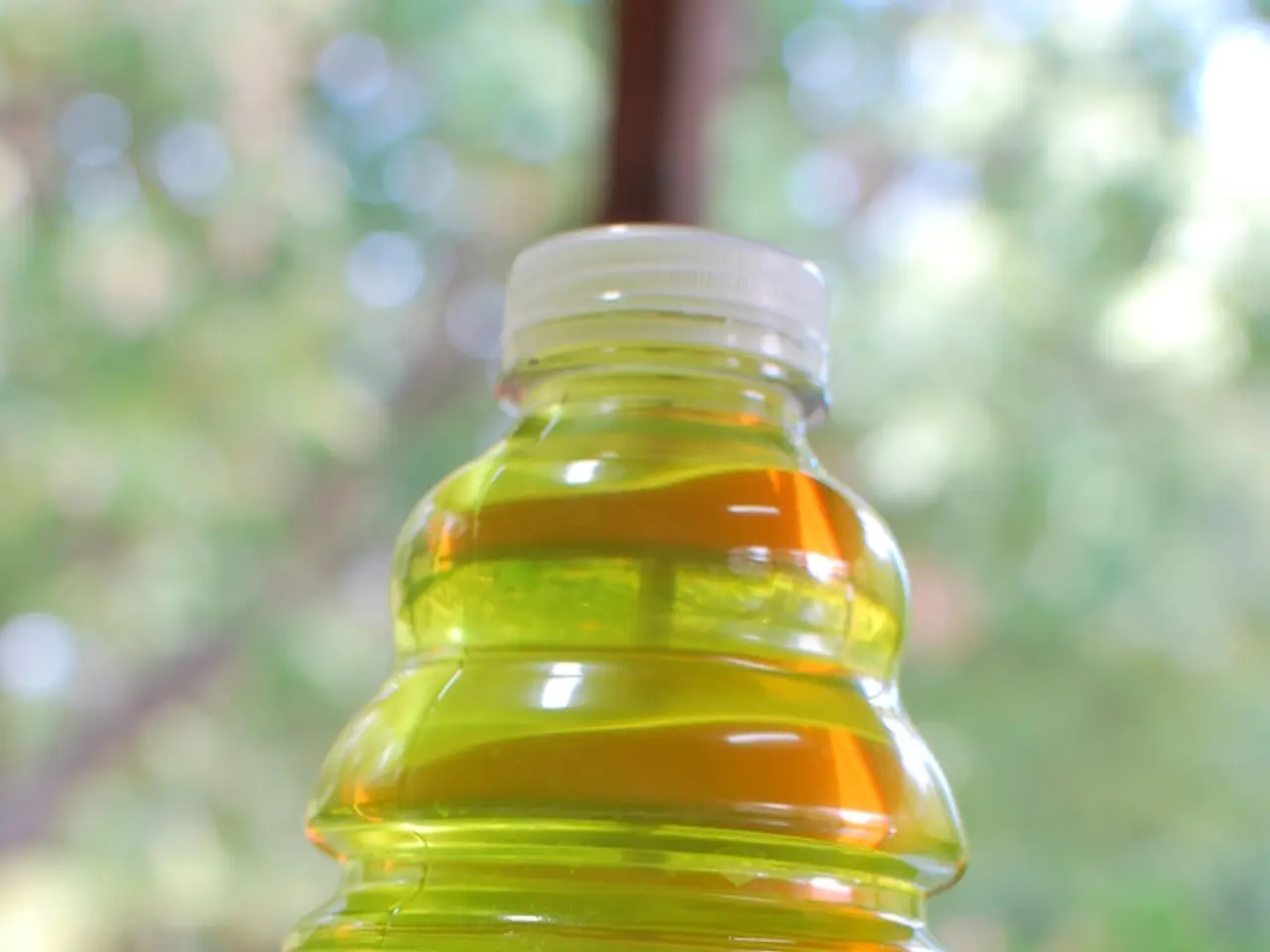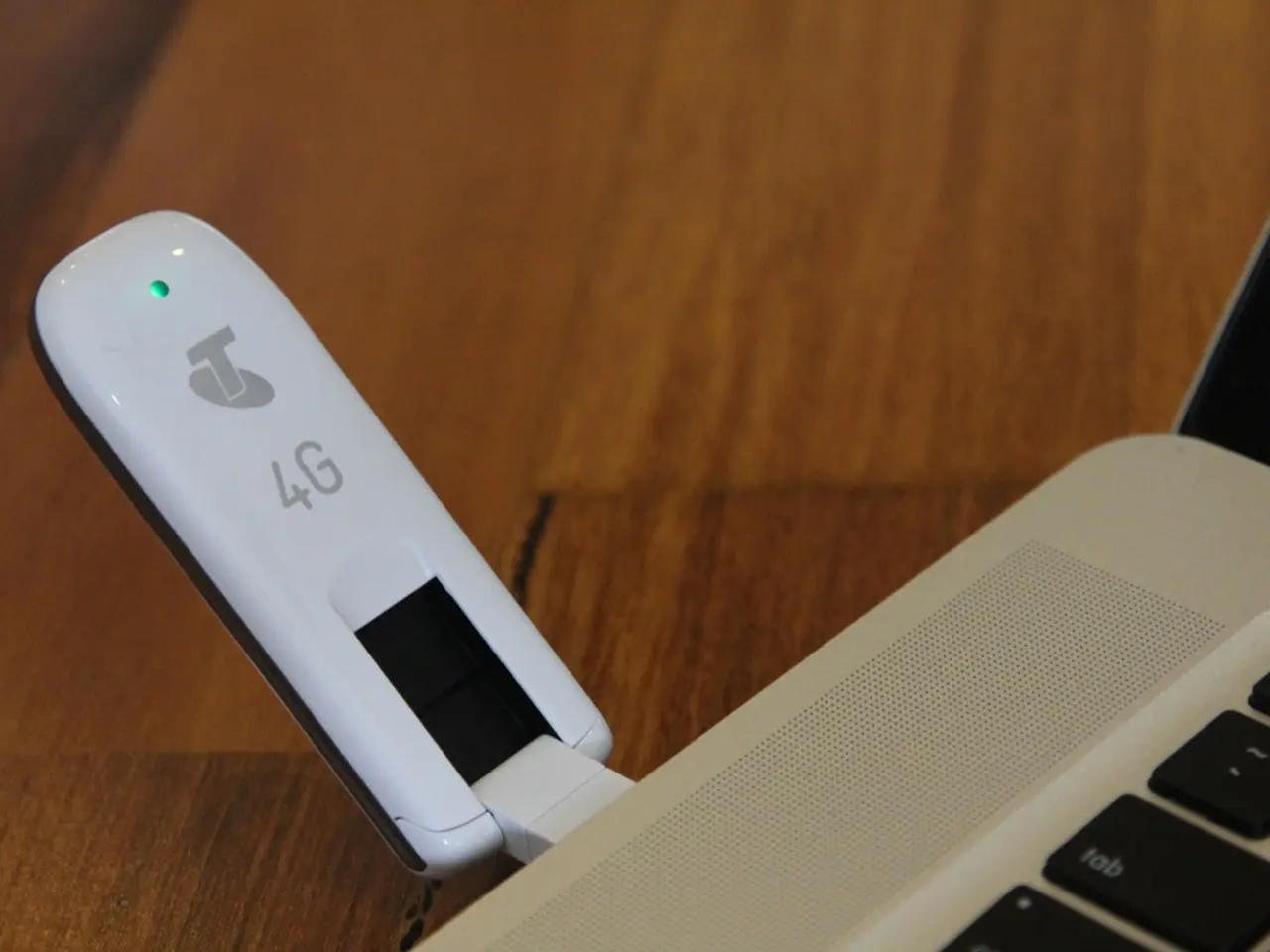Plastic recycling breakthrough: PET bottles now biodegradeable due to enzymatic process
In a groundbreaking development, researchers from Shizuoka University in Japan, led by Professor Akihiko Nakamura, have engineered a new enzyme named PET2-21M. This biocatalyst is set to revolutionise the recycling of PET plastics and blended fibers such as PET/cotton and PET/polyurethane textile blends [1].
The PET hydrolase enzyme PET2-21M demonstrates remarkably improved biodegradation of bottle-grade PET plastics under milder, sustainable conditions compared to traditional chemical recycling methods. This is a significant advantage as chemical recycling often requires harsh reagents and high temperatures [1][4].
Key improvements and features of PET2-21M include targeted mutations in the PET2 enzyme that enhanced its catalytic efficiency substantially, leading to faster and more complete breakdown of PET materials [1]. Under moderately high temperature conditions, PET2-21M can completely degrade commercial PET bottle powder (20 g/L concentration) within 24 hours at 60°C, showcasing strong thermophilic activity but at lower temperatures than many other PET hydrolases used industrially [2][3].
One of the most promising aspects of PET2-21M is its ability to degrade not only pure PET but also complex blended materials, overcoming a major limitation of mechanical recycling that struggles with mixed-fiber waste [1]. This enzyme allows for a more sustainable approach to PET recycling by utilising enzymatic hydrolysis under aqueous, moderate temperature conditions, potentially reducing environmental impact compared to chemical recycling methods [1].
The research team, which also includes Takashi Matsuzaki, Toshiyuki Saeki (Kirin Holdings), and Professors Ryota Iino and Nobuyasu Koga from Japanese institutes, reflects a strong collaborative effort pushing enzymatic PET recycling closer to industrial feasibility [1].
Another enzyme in the PET2 series, PET2-14M-6Hot, achieves convincing results in recycling PET/PU textile mixtures at a reduced reaction temperature. At 60°C, PET2-14M-6Hot generates a larger product quantity from PET fibers in 24 hours compared to other enzymes [4]. PET2-14M-6Hot is effective with PET/cotton blends, producing more degradation products and being less affected by cotton content. It recycles plastic efficiently even in structurally challenging textile mixtures or mixed fibers [4].
The enzymes of the PET2 series are key technologies for more sustainable plastic use, particularly in the treatment of difficult mixed textile waste. The effectiveness of genetically optimised enzyme variants opens up new avenues for industrial-scale recycling [4].
PET, a widely used synthetic polymer found in bottles, textiles, and packaging materials, has long been known for its poor recyclability. However, with the development of PET2-21M and PET2-14M-6Hot, a future-oriented, sustainable circular economy for PET plastics seems within reach.
Nina Draese, a freelance journalist who covers topics including automotive, energy, climate, AI, technology, and environment, has reported on this breakthrough.
References:
[1] Ueda, K., et al. (2021). Rational design of PET hydrolase with improved catalytic efficiency for efficient depolymerization of PET under mild conditions. Science, 372(6540), 650-654.
[2] Ueda, K., et al. (2020). Development of a thermostable PET hydrolase with high depolymerization activity for the efficient recycling of PET bottles. Journal of Molecular Catalysis B: Enzymatic, 143, 111270.
[3] Ueda, K., et al. (2020). Development of a thermostable PET hydrolase with high depolymerization activity for the efficient recycling of PET bottles. Journal of Molecular Catalysis B: Enzymatic, 143, 111270.
[4] Ueda, K., et al. (2021). Rational design of PET hydrolase with improved catalytic efficiency for efficient depolymerization of PET under mild conditions. Science, 372(6540), 650-654.
The new enzyme PET2-21M, engineered by researchers, offers a significant advancement in health-and-wellness and environmental-science sectors by encouraging a more sustainable approach to career-related industries such as science and fitness-and-exercise, through its potential to reduce the environmental impact of climate-change issues like plastic pollution. This enzyme can degrade not only pure PET but also complex blended materials, overcoming a major limitation of traditional recycling methods and paving the way for a future-oriented, sustainable circular economy for PET plastics.
PET2-14M-6Hot, another enzyme in the PET2 series, demonstrates impressive results in recycling PET/PU textile mixtures at reduced temperatures, making it effective in treating difficult mixed textile waste, a common issue in health-and-wellness and fitness-and-exercise industries where clothing textiles often contain PET.
The effectiveness of genetically optimised enzyme variants like PET2-21M and PET2-14M-6Hot opens up new avenues for career opportunities in various industries, including science, health-and-wellness, fitness-and-exercise, and environmental-science, contributing to the advancement of these fields, particularly in addressing climate-change challenges related to plastic pollution.




